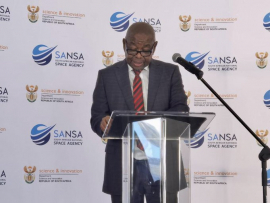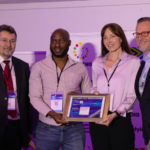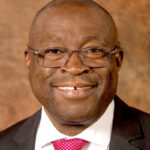South Africa now has a new 24-hour, state-of-the-art regional space weather Centre, which was launched in Hermanus, Western Cape.
Higher Education, Science and Innovation Minister, Dr Blade Nzimande, described today’s launch as a historic development and illustration of the country’s excellence in science.
“It is yet another demonstration that the DSI, together with its agencies, continues to respond to the socio-economic challenges of our country by using science, technology and innovation as a catalyst and catalyzer for economic development.”
The department’s entity, the South African Space Agency (SANSA), developed the new Centre, which is also the only one in Africa.
SANSA’s space weather Centre provides an important service to the nation by monitoring the sun and its activity, and by providing space weather forecasts, warnings, alerts, and environmental data on space weather conditions.
Through SANSA, Nzimande said the department now has managed to improve the coordination of South Africa’s space arena to maximize the benefits of current and planned space activities.
During the recent floods in KwaZulu-Natal, Nzimande said the agency provided satellite imagery to the National Disaster Management Centre and the Department of Cooperative Governance and Traditional Affairs (COGTA) to support the disaster response and understanding of the level of damage.
The same service was provided at the Jagersfontein mine waste dam that collapsed.
“The space weather capability that we are launching is a direct response to our good safety track record, which led to the International Civil Aviation Organization selecting SANSA as one of the two regional centres to provide space weather services, including solar storm forecasts and warnings to the global aviation sector,” Nzimande said.
Development agenda
The unveiling is part of the overall strategy to position science, technology and innovation at the centre of the country’s developmental agenda.
SANSA’s mandate is to promote and use space and cooperation in space-related activities, foster research in space science, advance scientific engineering and develop human capabilities in space science.
It also includes supporting for the creation of an environment conducive to industrial development in space technologies within the framework.
The establishment, which was completed by end of September 2022, took three years to build.
The centre includes infrastructure development, instrumentation deployment, product and service development, and skills capability development.
The total investment, according to the Minister, amounted to R107.5 million over the three years, which included a ring-fenced establishment grant of R70.89 million received from the DSI and R36.6 million invested directly by SANSA.
Space
Through SANSA’s researchers, South Africa has a growing international footprint and impact on new research within the space sector.
SANSA has since ensured its increased focus on transforming the space sector through skills development and public outreach.
“SANSA also has a role in international space cooperation, for example, we are currently negotiating with NASA for the establishment of a tracking and telemetry station in Matjiesfontein in support of future lunar exploration,” the Minister said.
The space agency, according to Nzimande, continues to implement activities targeting women in science and previously disadvantaged youth, while inspiring future space scientists and entrepreneurs through its public engagement programme.
“Thousands of learners have, through the years, engaged with SANSA experts at science and career festivals, school visits, science centres, and now even online.”
The Minister said he is heartened to witness the contribution of SANSA to the people and the global space industry.
“Examples of this important economic role of SANSA include its work in the agricultural economy through the use of open and big data for vegetation condition and stress monitoring, crop and other vegetation assessment, estimation of cropped arable land and production area statistics, above-ground biomass and yield estimation, and agricultural drought assessment and monitoring.”
Meanwhile, he said the agency contributes significantly to the national economy and job creation.
“We must promote this centre as part of tourism,” said Nzimande.












